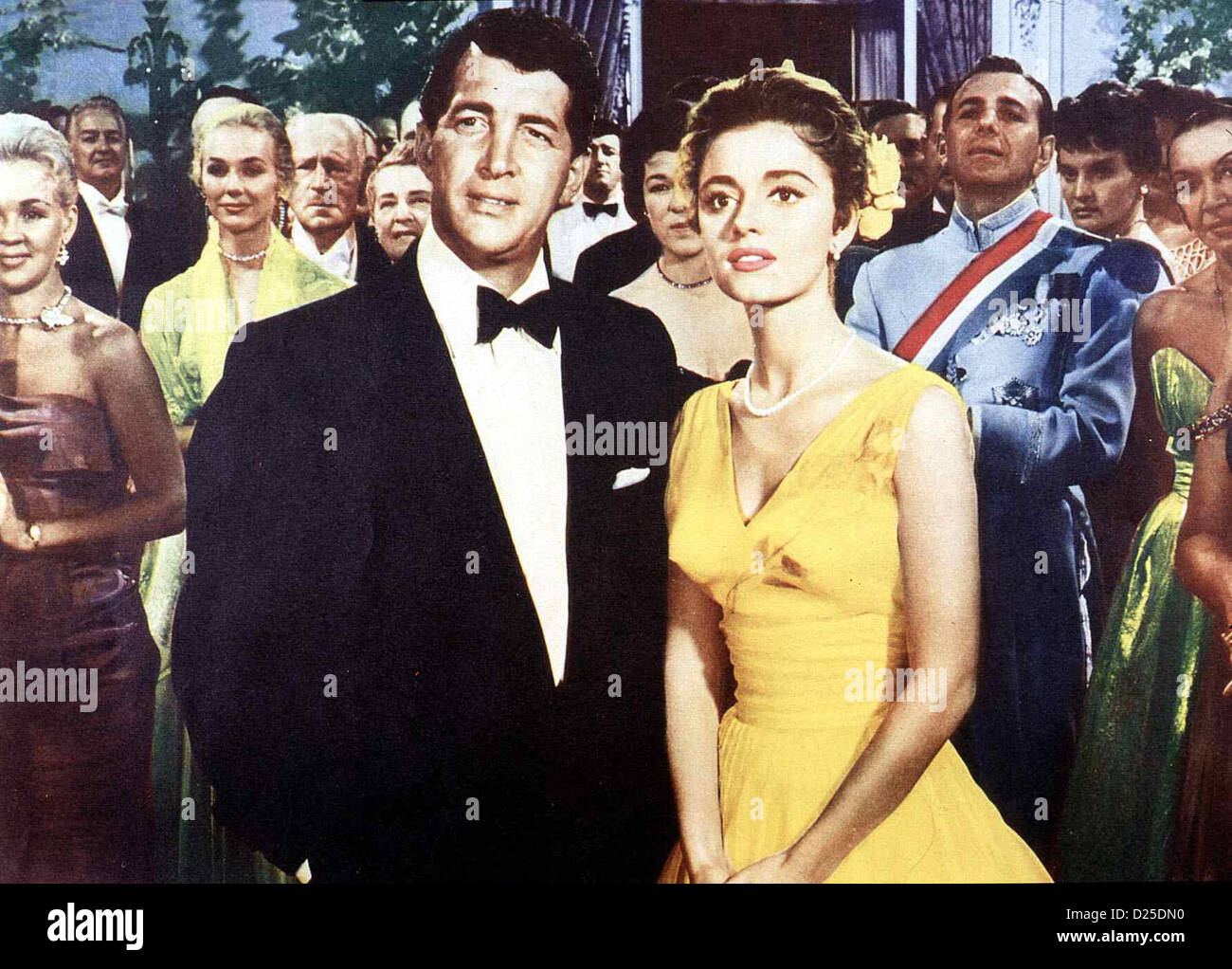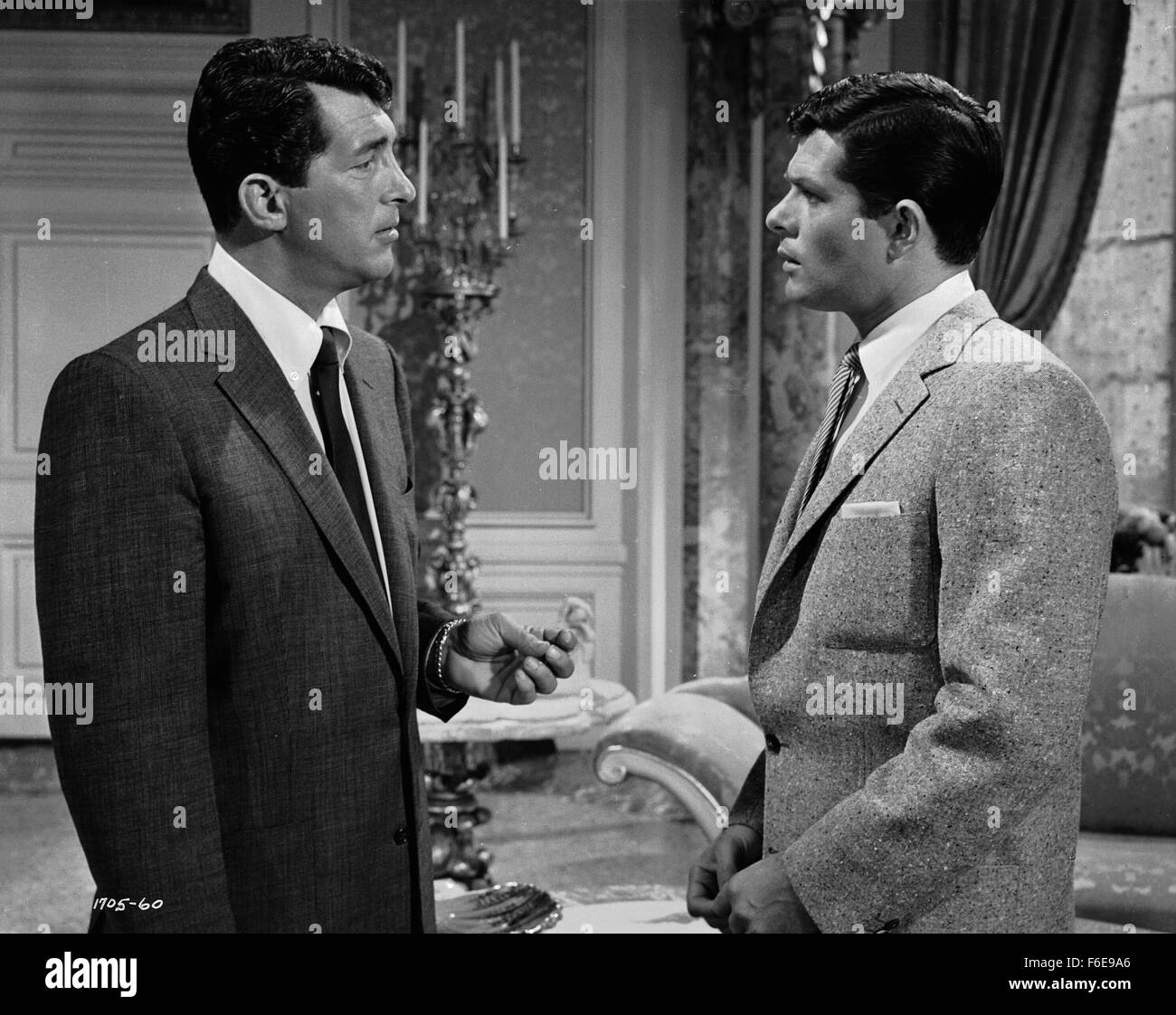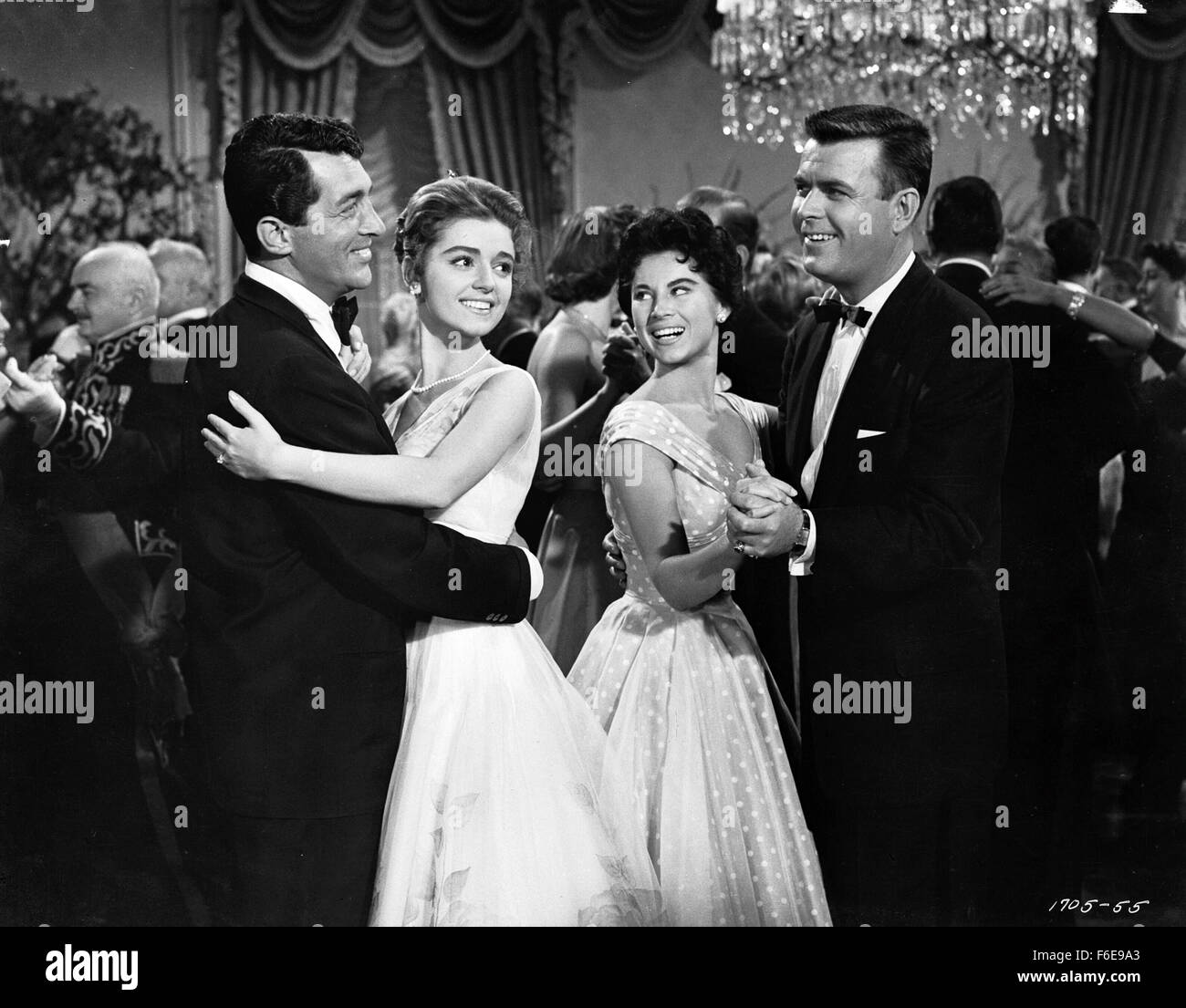← Back to Reviews
in
Ten Thousand Bedrooms
Dean Martin's considerable onscreen charisma helps to disguise the fact that the 1957 romantic comedy Ten Thousand Bedrooms goes on way too long.

Martin plays Ray Hunter, a millionaire playboy who arrives in Rome to take over ownership of a hotel there. He is given the royal tour upon his arrival by Maria Martelli (Eva Bartok) but a quick stop at her home finds Ray completely smitten with Maria's baby sister, Nina (Anna Maria Alberghetti). After a courtship of approximately 48 hours, Ray and Nina decide to marry but her father (Walter Slezak) won't let Nina get married until Maria and her other two sisters get married first.

Also thrown in the mix is a penniless Polish Count who thinks he's a sculptor (Paul Henreid) who is crazy about Maria and Ray's pilot, Mike (Dewey Martin), who falls instantly in love with Nina and a pair of Ray's business associates who Ray has flown in to romance the two middle sisters.

This film has a footnote in cinematic history as the first film that Dean Martin made without Jerry Lewis and it's clear that the money people behind this film were a little nervous about Martin's ability to carry a film, evidenced in the fact that Martin sings four songs in the first 20 minutes of the film as if his singing might make up for the fact that Lewis isn't there, but it really wasn't necessary. The screenplay by Laszlo Vadnay and Art Cohn has created a central character for Martin that fits him like a glove and would define the screen persona that Martin would perfect in the next decade or so. With sure-footed guidance by director Richard Thorpe, Martin proves that he is a movie star in his own right.

Unfortunately, the screenplay is a little convoluted and takes way too long to resolve a fairly predictable story. We really never buy the Ray and Nina pairing since Nina is only supposed to 18, but we accept it because Alberghetti is clearly older than 18 and the role is written as if the character were a lot older, but the pairing does allow Martin and Alberghetti to sing together which was not a bad thing. Ironically, Alberghetti would be Jerry Lewis' leading almost a decade later in Cinderfella.

Bartok brings a sophistication to Maria that is quite endearing and, needless to say, Walter Slezak steals every scene he's in as the confused Martelli patriarch. Sadly, the gifted Jules Munshin is wasted in a thankless role as Ray's manservant. The film also features some lovely Italian scenery and a kicky title tune, but I definitely found myself checking my watch.
Dean Martin's considerable onscreen charisma helps to disguise the fact that the 1957 romantic comedy Ten Thousand Bedrooms goes on way too long.

Martin plays Ray Hunter, a millionaire playboy who arrives in Rome to take over ownership of a hotel there. He is given the royal tour upon his arrival by Maria Martelli (Eva Bartok) but a quick stop at her home finds Ray completely smitten with Maria's baby sister, Nina (Anna Maria Alberghetti). After a courtship of approximately 48 hours, Ray and Nina decide to marry but her father (Walter Slezak) won't let Nina get married until Maria and her other two sisters get married first.

Also thrown in the mix is a penniless Polish Count who thinks he's a sculptor (Paul Henreid) who is crazy about Maria and Ray's pilot, Mike (Dewey Martin), who falls instantly in love with Nina and a pair of Ray's business associates who Ray has flown in to romance the two middle sisters.

This film has a footnote in cinematic history as the first film that Dean Martin made without Jerry Lewis and it's clear that the money people behind this film were a little nervous about Martin's ability to carry a film, evidenced in the fact that Martin sings four songs in the first 20 minutes of the film as if his singing might make up for the fact that Lewis isn't there, but it really wasn't necessary. The screenplay by Laszlo Vadnay and Art Cohn has created a central character for Martin that fits him like a glove and would define the screen persona that Martin would perfect in the next decade or so. With sure-footed guidance by director Richard Thorpe, Martin proves that he is a movie star in his own right.

Unfortunately, the screenplay is a little convoluted and takes way too long to resolve a fairly predictable story. We really never buy the Ray and Nina pairing since Nina is only supposed to 18, but we accept it because Alberghetti is clearly older than 18 and the role is written as if the character were a lot older, but the pairing does allow Martin and Alberghetti to sing together which was not a bad thing. Ironically, Alberghetti would be Jerry Lewis' leading almost a decade later in Cinderfella.

Bartok brings a sophistication to Maria that is quite endearing and, needless to say, Walter Slezak steals every scene he's in as the confused Martelli patriarch. Sadly, the gifted Jules Munshin is wasted in a thankless role as Ray's manservant. The film also features some lovely Italian scenery and a kicky title tune, but I definitely found myself checking my watch.
